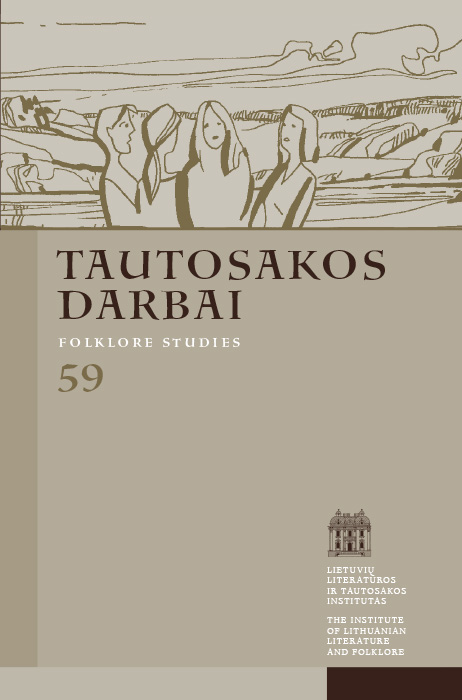Reflections of the Lithuanian World in the Literature Textbooks from the DP Camps: Analyzing the Concept of Folklore
Abstract
The article deals with the literature textbook published in Augsburg, Germany, in 1946 and entitled “Synopsis of the Lithuanian Literature”. It was edited by a Lithuanian writer and teacher Petronėlė Orintaitė-Janutienė, and its sources included a textbook “The Lithuanian Literature: Part 1”, published in the interwar Lithuania (in 1939) and edited by Motiejus Miškinis. However, Orintaitė-Janutienė emphasized having used the publication by Miškinis only “a little”, while writing all the rest “from the memory”. Therefore, the article aims to elucidate what image of the Lithuanian world this memory-based textbook rendition impressed upon the young person studying at a war refugees’ camp, what support it proposed, and what kind of experience it prepared the young one for. The more detailed analysis focuses on the part from the textbook that briefly outlined the concept of folklore. This choice is grounded in the idea nationalism theory that oral culture bears special significance to the formation of the nationality and development of the national consciousness. The analysis also includes some folklore texts from the literary supplement (also edited by Orintaitė-Janutienė) to the Lithuanian weakly Žiburiai (‘Lights’), published in Augsburg in 1945–1949. The author notes that the outline of the Lithuanian folklore in the textbook and the selection of the folklore samples stemmed from the interwar Lithuanian schooling tradition, but they also reflected reaction to the complicated historical situation, in view of which the national community had to rally and act together, discovering new alternatives for survival. The analyzed material allows the author to conclude that the national consciousness of the Lithuanian student at the DP camp was strengthened by presenting certain past experiences inherited from the ancestors, by fostering the idea of historical continuity, by reviving and cherishing the topographic memory, emphasizing the most important existential attitudes, and listing the culture texts testifying to the Lithuanian national distinction.
